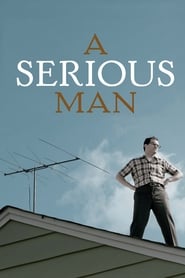Pretty sure the offer of ice tea from the film's femme fatale is a reference to Double Indemnity. Very clever. But that might just be the problem with this kind of pastiche: what's it all in aid of? I understand, intellectually at least, how this film can be read as a meditation on faith, a black comedy on suburban Jewishness, and potentially a parallel to the Book of Job. But if it didn't look so good, it would have almost completely washed over me. Also the Korean student sub-plot really grates.
A Serious Man doesn't rank among the Coen brothers' best films in terms of entertainment. The movie is as painful as it is funny, and it's structurally flat, arranged as just a series of misfortunes. Stuhlbarg holds the film together as the face of suffering humanity, vaguely ridiculous, but too much like us for his pain to be completely amusing. To be honest, I find myself wanting to resist the movie on philosophical grounds. It's hard to love a movie that makes you feel anxious and miserable, and yet it's impossible not to respect a movie that has that power.
— Mick LaSalle (SFGate)
The Coens’ humor is distant, dry, and shrivelling, and they make the people in A Serious Man so drably unappealing that you begin to wonder what kind of disgust the brothers are working off. Whatever indignities the Coens suffered as teens, they have hardly been hampered by those memories as adults. Philip Roth’s collection of stories Goodbye, Columbus, which tore into the timidity and prohibitions of middle-class American Jewish life, came out in 1959, when Ethan Coen was two and Joel five. The Coens’ laughter is not exactly fresh. Dozens of popular comics in the past half century have worked in the same satiric vein.
— David Denby (The New Yorker)

